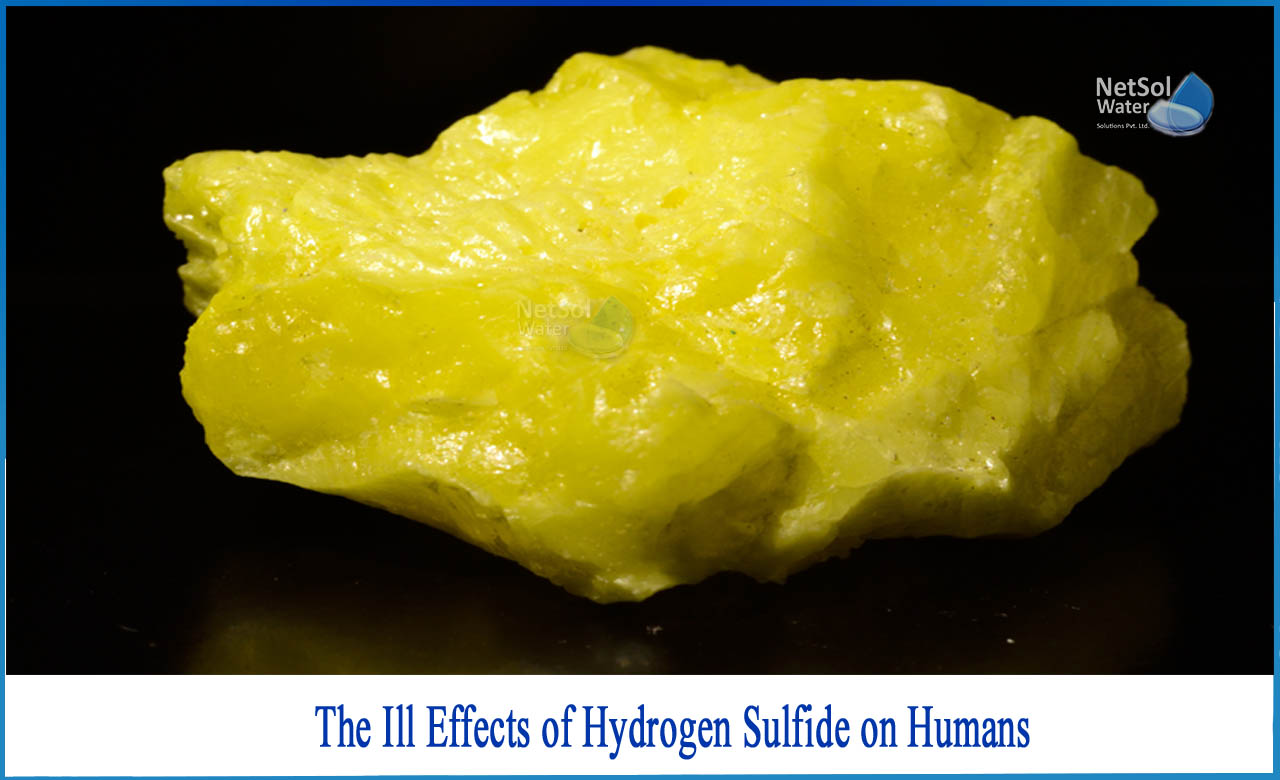Overview
In biological systems, hydrogen sulphide (H2S) has both physiological and toxicological roles. Acute exposure to high quantities of H2S can be fatal, while long-term exposure to ambient levels of H2S can have negative health consequences.
What level of hydrogen sulphide is lethal to humans?
Since hydrogen sulphide is a gas the most common way to be exposed to it is through breathing. Acute poisoning case reports, occupational exposures, and restricted community studies, provide the majority of human data. Human acute poisonings continue to occur in restricted settings. Single inhalation exposures to high hydrogen sulphide concentrations have deleterious consequences in a variety of systems.
Exposure to H2S can range from light to severe – even fatal – in terms of human safety!
The scent will generally alert you to effects because the gas is colourless but not odourless; but, in greater doses, you will lose your sense of smell and will be unable to notice the stench. With lower levels, you usually have mild symptoms such as tears in the eyes, skin discomfort, and respiratory irritation. Other mild to severe side effects include:
• Skin and eye irritation
• Nausea
• Fatigue
• Coughing
• Loss of appetite
• Loss of smell
• Poor memory
• Dizziness
• Delirium
• Loss of or diminished equilibrium
• Tremors
• Convulsions
• Rapid unconsciousness or "knockdown"
• Demise (in extreme exposure limits)
For patients who had a high enough concentration of hydrogen sulfide to cause unconsciousness, there are also long-term repercussions.Poor motor control, attention span, memory, and headaches that persist after waking up are among the side effects. Symptoms of the heart and circulatory system can also appear in some.
Hazards of Hydrogen Sulfide in the workplace of Humans
Aside from the health risks posed by hydrogen sulfide, there are also safety problems for workers in wastewater and water treatment facilities. Because the gas is very flammable and explosive, improper handling can result in life-threatening consequences. In addition, H2S burns and produces additional harmful vapours and gases, including sulphur dioxide, which irritates the throat and nose, as well as the lungs and eyes. In excessive doses, it can also induce breathing difficulties and inflamed lungs.
When exposed to liquid hydrogen sulfide, the danger of "blue skin" or “frostbite” increases. If clothing becomes wet, it's critical to stay away from ignition sources and eliminate the clothes to let it to dry in a secure location.Also, as previously indicated, falls from "knockdown" might critically hurt a worker.
Preventing the Harmful Effects of Hydrogen Sulfide
You must first learn how to recognise H2S before you can prevent its consequences. Of course, avoiding exposure is better.
The air should be tested by a trained expert. If the presence of a gas is found, the place must be vented. Workers should be provided with suitable personal and protective rescue and communication devices if the gas cannot be eliminated. Controlling the amount in the air can be made easier by local exhaust ventilation and enclosures. Non-sparking ventilation systems, safe electrical systems in storage areas and places where a corporation employs hydrogen sulfide, and approved explosion-proof equipment are also essential.
The first step in preventing hydrogen sulfide impacts is to teach and educate workers about the hazards and controls, as well as:
• Strict restrictions and processes for removing the gas - before it reaches dangerous levels;
• Controlling the levels downstream by eliminating the source of H2S wherever possible;
• Confined space procedures;
• Hydrogen sulfide characteristics, health dangers, and sources.
Conclusion
Humans are exposed to hydrogen sulfide through both endogenous and external sources. The metabolism of sulfhydryl-containing amino acids (e.g., cysteine) by bacteria found in both the intestinal tract and the mouth accounts for the majority of endogenous production. The main method of exogenous hydrogen sulfide ingestion is through breathing. The oral route is irrelevant in practise.
Respiratory and neurological consequences have been observed in persons exposed to high quantities of hydrogen sulfide through inhalation over brief periods of time; death may occur as a result of respiratory failure. Hydrogen sulfide is also an irritant to the eyes and respiratory tract. There's also some evidence that hydrogen sulfide exposure is linked to a higher likelihood of spontaneous abortion.
Howcan Netsol Water help?
Netsol Water is committed to providing our valued customers with hands-on service, expert counselling, and training. Every environmental problem and its management have a solution in us. We provide ETPs, STPs, WTPs, WWTPs, equipment’s for odour control, among other services.
Netsol Water is Greater Noida-based leading water & wastewater treatment plant manufacturer. We are industry's most demanding company based on client review and work quality. We are known as best commercial RO plant manufacturers, industrial RO plant manufacturer, sewage treatment plant manufacturer, Water Softener Plant Manufacturers and effluent treatment plant manufacturers. Apart from this 24x7 customer support is our USP. Call on +91-9650608473, or write us at enquiry@netsolwater.com for any support, inquiry or product-purchase related query.



